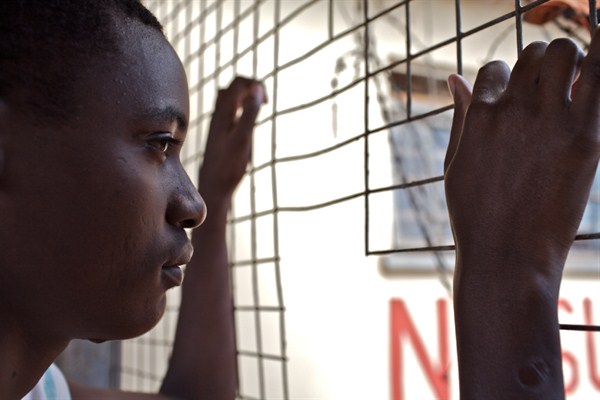Last year, during a midnight search for contraband in South Africa’s St. Albans maximum security prison, more than 200 inmates were forced to lie naked on the ground in a human chain, each one’s face pressed into his neighbors’ buttocks. They were then subjected to beatings, electric shocks and torture.
The abuse was not an isolated case. According to a complaint lodged by former inmate Bradley McCallum with the United Nations Human Rights Committee (UNHRC), a similar incident occurred at St. Albans in 2005 after the stabbing of a prison warden. In his complaint, McCallum alleged that inmates were forced to lie naked in a human chain, then sprayed with water, bitten by dogs and beaten by guards with batons and pickaxe handles. He described how he himself was shocked, beaten and raped with a baton. As a result of the shock and fear, he said, inmates urinated and defecated on themselves and one another.
After ignoring five requests by the UNHRC to respond to McCallum’s allegations, South Africa was found guilty of human rights violations in 2010, but last year’s incident shows how little has changed since. This is sobering, given that post-apartheid South Africa has one of the most progressive constitutions in the world.

